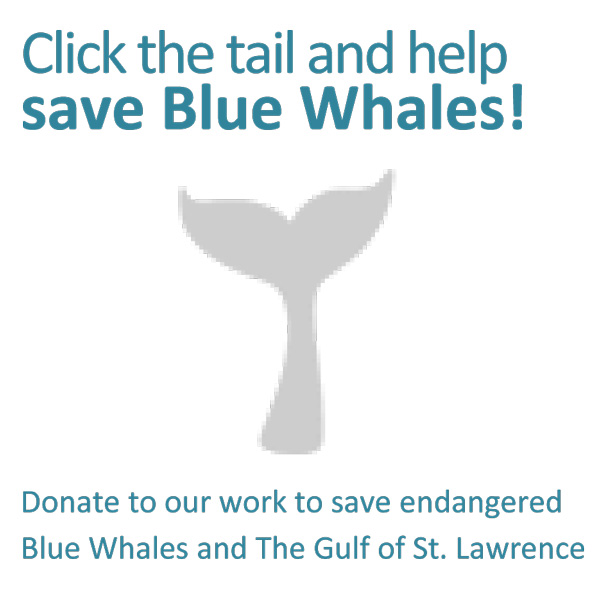Things are heating up in our campaign to protect the blue whale and the Gulf of St. Lawrence and I want to share the latest news with you!
In the last month, over 2,300 letters have been sent in response to our call out to protect the blue whale. I just read an Editorial in the Toronto Star (Canada must do its part to preserve biodiversity: Editorial) calling for protection of the Gulf as a means of doing our part to protect global biodiversity. And just this week, the Canada-Newfoundland and Labrador Offshore Petroleum Board cancelled two land-based leases on the west coast of NL that could have led to fracking from land to under the ocean - another serious threat to the Gulf.
Could it be that after almost 20 years, we are finally getting though???
Well, I think we can be cautiously optimistic. Although I have spoken with many people involved in this issue, there seems to be a lack of willingness to face the fact that our ability to regulate (never mind protect and restore) the Gulf of St. Lawrence is desperately lacking.
This lack of a holistic, scientific approach is how the licence to explore for oil in the Gulf was issued in the first place. This is how the voices of Chiefs of the Mi’gmawei Mawiomi calling for a 12-year moratorium in the Gulf landed on deaf ears; the offshore board is definitely not the venue for nation-to-nation discussions such as this. This is why the words of scientists - calling for a halt to seismic blasting while the blue whale was migrating - were ignored in 2010. This is how advice from DFO and Environment Canada regarding inadequate oil spill modelling can get inadequate answers from the company wanting to drill in the Gulf.
We are continuing to reach out to anyone who will listen to talk about how important it is to protect the Gulf of St. Lawrence. We are telling them about the sensitive nature of the Gulf, its ecological and cultural significance. We are telling them that a moratorium in the Gulf can achieve three things high on the federal government's mandate: reconciliation with indigenous peoples through respectful dialogue and meaningful consultation, increased protection of our oceans, and regulatory and legislative reform, particularly in the areas of environmental assessment and natural resources.
And we are being heard, because you have amplified our voice. Still, based on the feedback we have received thus far, there is lots of work to be done.
There may be a temptation to take the easy route instead of standing up for the Gulf. Let the low price of oil drive development (or lack thereof) in the Gulf, and leave it to the future to make the tough decisions. But leaving things to be assessed by a broken, fragmented regulatory system will not help accomplish government's stated objectives, and it leaves the people and livelihoods in the Gulf under constant threat.
Making change is a huge challenge, but also an immense opportunity, for us as a society and of course for creatures like the mighty blue whale, whose very survival may literally depend on it.
My thanks,
| Attachment | Size |
|---|---|
| 67.01 KB |
